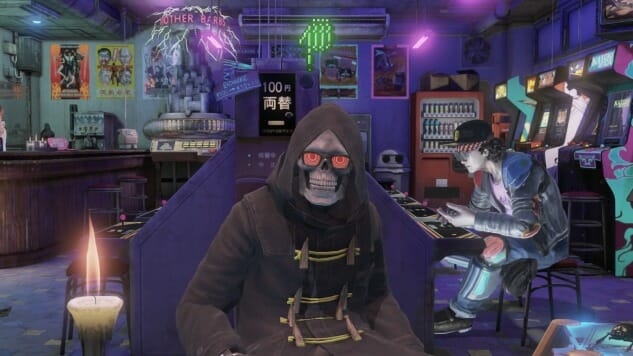The Grind: How Free to Play Games Shatter Gaming’s Illusion of Meritocracy

To a lot of people who play games, there’s nothing more off-putting than what’s known as the grind. The grind is the point where the progress comes down to a trickle, where you’re reduced to engaging with a game as a mechanism of labor. Instead of seeing anything new, or taking steps forward, you’re relegated to doing the same tasks repeatedly, trying to slowly build up enough resources to get over the next hurdle. Maybe that’s getting enough cash to buy a new upgrade, or finding enough materials to build something new. Nowhere is the grind more evident than in free-to-play games, games which make their money not off an initial purchase, but on the understanding that by letting players in for free they can build up a large player base and subsequently make money from small, repeat purchases by dedicated players.
As someone who grew up without much spending money, these games provided an accessible way into the social spaces of multiplayer games. Places where I could vent frustration, or team up with strangers and accomplish a goal. Even now I find myself drawn to them, if only for their openings, which tend to lead with spectacle and momentum designed to draw the player in, before the grind settles in. The grind never bothered me much either. Intellectually, I understood how it operated, how it would mete out slivers of progress at just the right points to keep me playing until the next one. But I didn’t “get it” until I played Blacklight: Retribution.
A free-to-play first person shooter, Blacklight is a game that might be indistinguishable from most military style shooters if not for its cyberpunk theme. Each arena is covered in holograms, neon, East Asian languages and architecture that tells you the designers watched a lot of Blade Runner and Ghost in the Shell. More relevantly, Blacklight brings you into the mercenary trade by letting you obtain new equipment with money you earn by killing other players and winning a match. You can do this in one of two ways: you can buy new equipment outright for an exorbitant amount, or you can rent it for a shorter period of time for much less. I started out like I imagine a lot of players might, trying to earn enough money to outright buy every piece of equipment in my arsenal, seeking the security of knowing that I’d be able to keep it around permanently. It all started to click, though, when I realized that i could afford most of the equipment that kept me competitive with a few well played rounds, if I decided to rent it all instead.
I was working in retail at the time, unloading trucks and stocking shelves overnight. I’d come in before the store closed, and often left after it had opened. Knowing that after a ten hour shift I could come home and play for an hour or two and keep that equipment made me feel like I was making progress, no matter how temporary it might actually be. Why would I put all those hours into owning a single piece of equipment when I could rent an entire arsenal daily? Who cares if they required me to keep paying up? Besides, what if I wanted to try out another weapon? Why be locked into a single choice when I could spend the same money on so many different ones? My approach to Blacklight complemented the mindset I had in my working life—in lieu of long term goals that seemed attainable I spent life living paycheck to paycheck, planning no longer than two weeks into the future. After all, why chase impossible dreams like owning a house when it’s cheaper to rent? Besides, what if I wanted to live somewhere else?
This is a familiar mindset to anyone who grew up poor, and I suspect, to a growing number of people in my generation who are coming to terms with the reality that the American Dream is just that—a dream. The idea of becoming self-sufficient, of having any long term security through only your own efforts, has become a cruel joke. But this “bootstrap mentality” still exists in plenty of places, not least among them videogames themselves. If videogames are the ultimate medium for power fantasy, then today’s modern games are the perfect fantasy for a world that frequently lays waste to the idea of individual success.
Games today are about incremental progress. It may take hundreds of hours, but eventually you’ll accumulate enough resources that you can pass any challenge. Failure is a speedbump on the way to your inevitable success. The only real way to fail is to stop playing before the end arrives. It’s an extension of an attitude that’s long been held in games, that even if the world at large isn’t fair, games are. Nowhere is this better exemplified in Simon Parkin’s reflection on the idea of the “gaming community” for The New Statesman, where he declares:
There are many reasons that video games are a potent draw to the human mind, but perhaps none more so than the fact that they are endlessly fair and just. They reward you for your efforts with empirical, unflinching fairness. Work hard in a game and you level up. Take the path that’s opened to you and persevere with it and you can save the world. Every player is given an equal chance to succeed. As such, there is a prelapsarian quality to video games that makes them irresistible, especially to people whose experiences in life have been of injustice and arch unfairness. If you are a member of a downtrodden marginalised group, what better salve could there be than a video game, the great contemporary leveller?